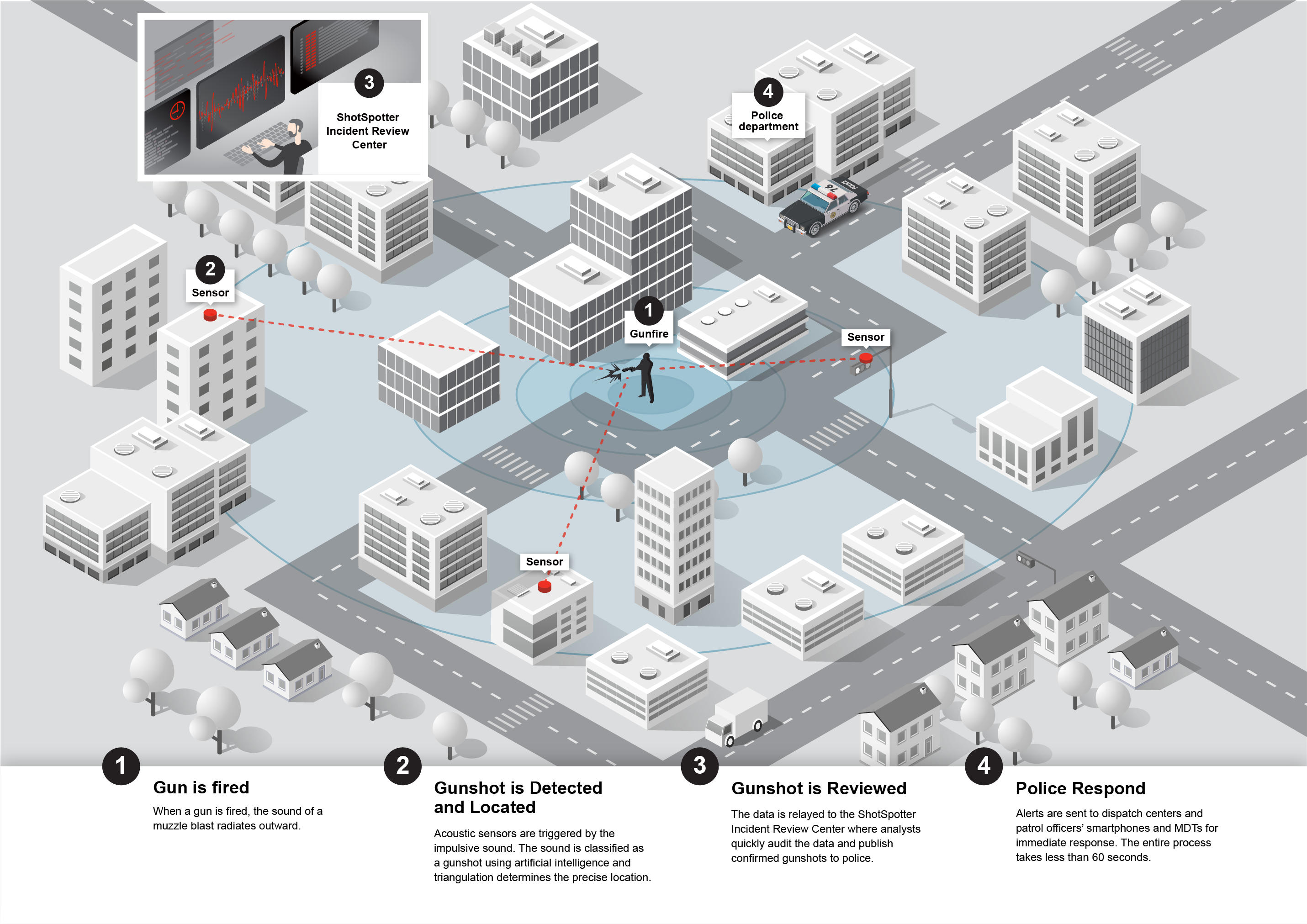Police Beat the Clock with ShotSpotter
January 4, 2023
Innovative technology is now making its way to Suffolk County, allowing our police force to respond to emergencies quicker than ever. ShotSpotter is a high-tech crime fighting tool that will help the Suffolk Police Department pinpoint when and where gunfire occurs.
ShotSpotter works by using audio sensors to quickly detect, and time stamp the sound of gunshots and similar sounds. It is through this feature that the police department receives an immediate alert and will dispatch to the crime scene if necessary.
“I am a person who believes people shouldn’t have guns period,” said Susan Lewis, Brentwood school librarian. “I live here. My kids live here. So it’s always a concern.”

ShotSpotter has been partnering with cities and police since 1997, helping prevent further catastrophe from mass shootings and other firearm related crime.
According to the ShotSpotter website, the data from 28 cities with crime rates from 2013 to 2014 shows a decrease in 28.8% of gunfire rates. According to the ShotSpotter website, ShotSpotter has caused gunfire reductions to decrease from 80% in related crime and homicide accounts all the way down to 40%.
One thing many can agree on is the fact that any number for Firearm related crime statistic is too high. In New York City alone, in March of 2015 up to 27 guns were recovered by the NYPD and 21 arrests were made by ShotSpotter alerts, 11 of these events were not reported.
“I don’t really know the numbers, that’s the truth, but I imagine whatever number it is, it should be lower,” said Denise Weissman, an English teacher. “[ShotSpotter] is a good thing but it’s an unfortunate thing that we need something like this.”
ShotSpotter is a steppingstone in decreasing crime rates and the amount of people being affected or injured from the atrocities of gun violence. However, ShotSpotter is only effective at mitigating gun-related crime, not erasing it.
“I think it’s a societal issue rooted in multiple ways that we are failing people,” said Kate Macrae-Lasky, English department chairperson. “If neighbor looks out for neighbor, I think things get safer than if we have big brother trying to figure everything out.”


